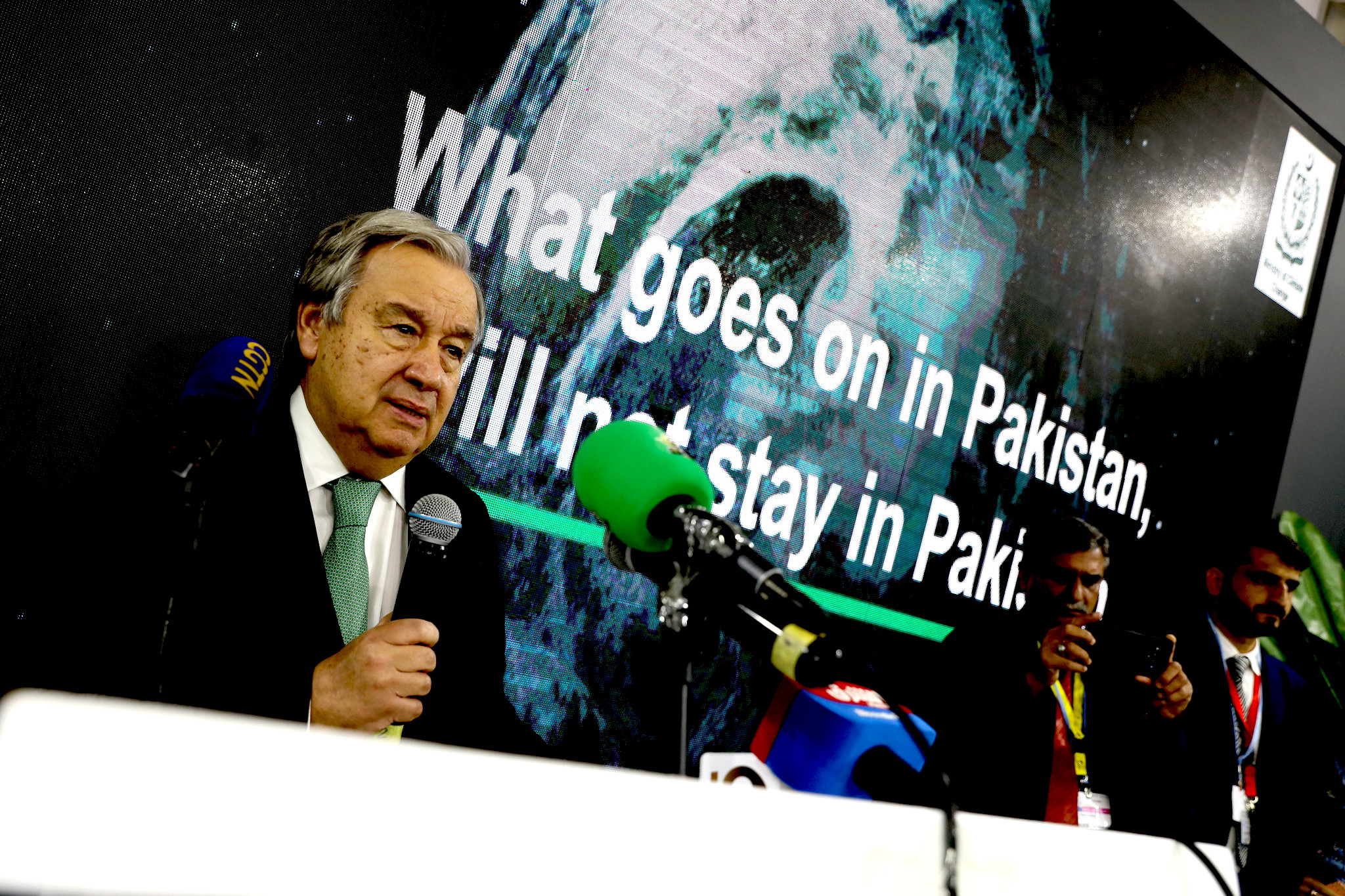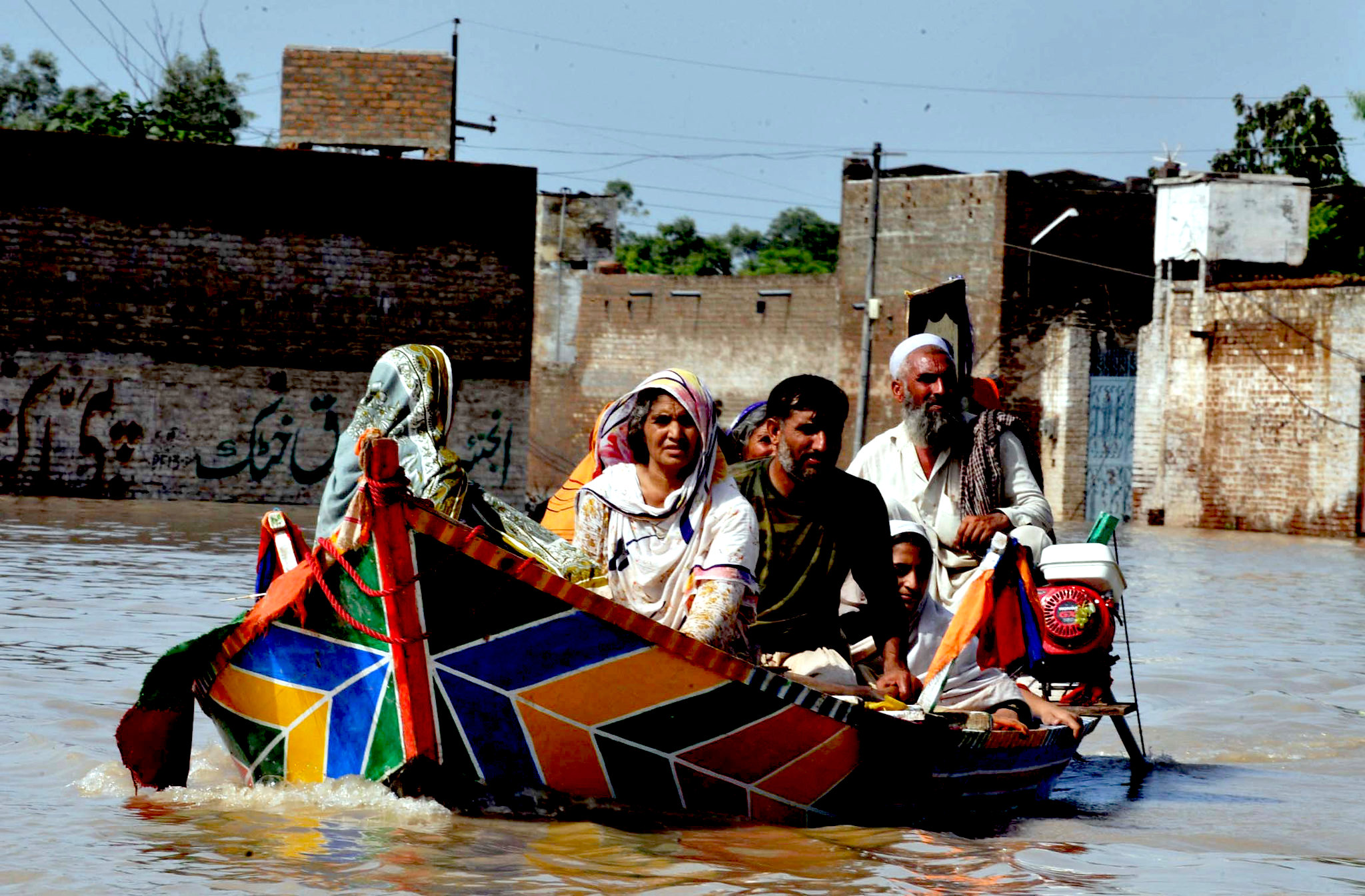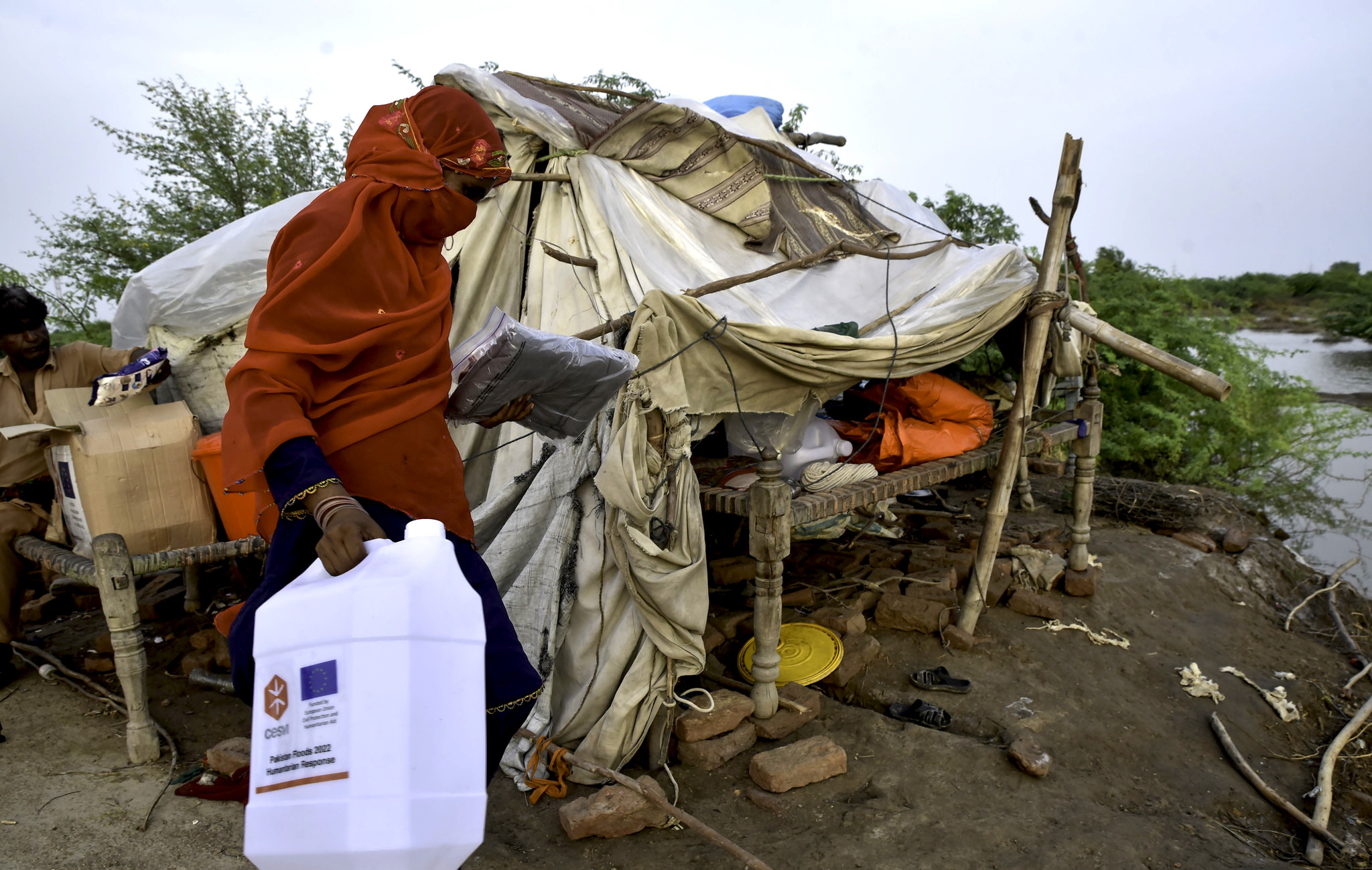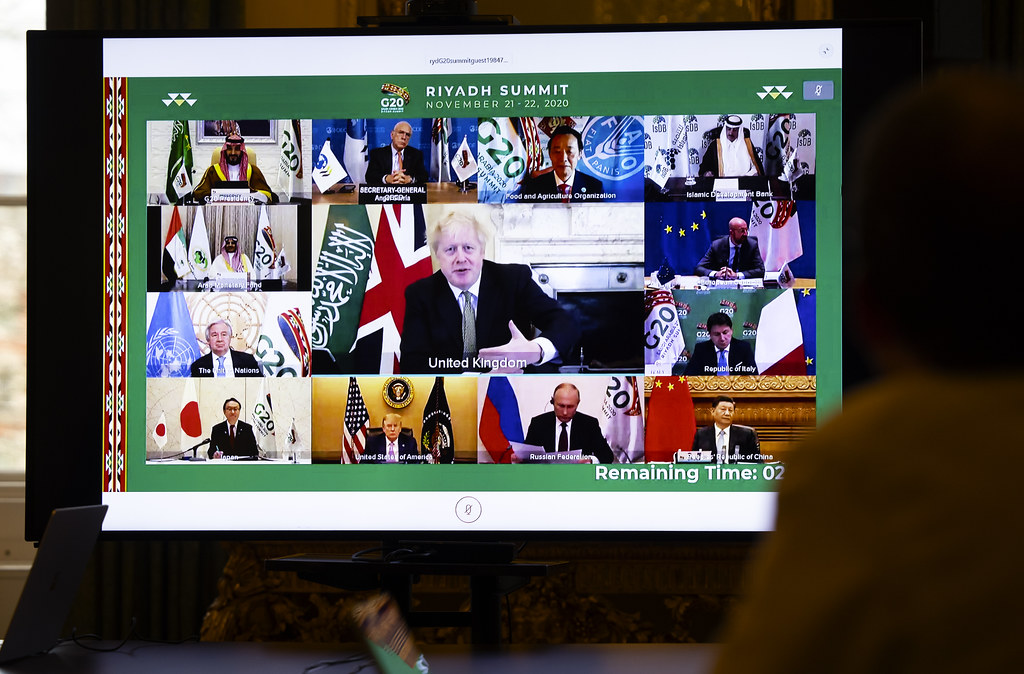Global South countries that are least responsible for the climate crisis are being forced to take on the devastating costs, writes Jerome Phelps.

U.N. Secretary-General António Guterres at the COP27 climate meeting in Egypt, Nov. 7. (UNclimatechange, Flickr)
By Jerome Phelps
openDemocracy
 With delegates gathered in Egypt for the COP27 climate conference, one topic will be on many minds but low on the formal agenda – the mounting debt crisis facing lower-income countries.
With delegates gathered in Egypt for the COP27 climate conference, one topic will be on many minds but low on the formal agenda – the mounting debt crisis facing lower-income countries.
Rich industrialised countries will have arrived in Sharm El-Sheikh with new tactics to delay and avoid taking responsibility for the vast costs of the climate crisis that they have caused. As they block and procrastinate, increasingly massive debts are being piled onto countries in the Global South, which are on the receiving end of devastating floods, storms and droughts.
Global South governments will demand progress on addressing loss and damage, the requirement that countries should be compensated for the harm that the climate crisis is already causing them and that cannot be prevented.
Establishing a fund, the Loss and Damage Finance Facility, was a key demand of the Global South and activists last year, but rich countries kicked the issue into the long grass of a three-year dialogue process.
The global failure to address the debt crisis will hang heavy over the discussions. Many Global South countries were facing increasingly unpayable debt levels even before the pandemic savaged tourism-dependent economies and generated massive new costs for healthcare and supporting communities.
Russia’s invasion of Ukraine [and the sanctions it spurred], alongside speculation in the financial markets, has exacerbated the situation, sending food and fuel prices spiraling.
And the climate crisis is proliferating debt. Global South countries that are least responsible for the climate crisis are being forced to take on the devastating costs — this summer’s flooding in Pakistan alone caused an estimated $40 billion of damage.
Pakistan was already in a debt crisis before the flooding and is taking on more debt to pay for it. Following the previous floods in 2010, Pakistan’s additional borrowing cost its people at least $36 billion.

A family escaping floods in northwestern Pakistan in 2010. (Abdul Majeed Goraya / IRIN, CC BY-NC-ND 2.0)
These costs are paid straight out of stretched national budgets, at the expense of preparation for the next climate-related disaster, as well as adaptation to the climate emergency, health, education and social protection. Global South countries are currently spending five times more on debt repayments than they are on addressing the climate crisis.
The climate emergency means more debt for the Global South. And debt means that they cannot adequately respond to the climate emergency.

A woman in Sindh, Pakistan, lives in a shelter made of sticks and cloths after her home was destroyed by this summer’s flooding. (European Union, Flicker CC BY 2.0)
In addition, climate finance provided by richer countries is not only inadequate but can make the situation worse. Rich countries have been widely condemned for their failure to meet their own grossly inadequate target of providing $100 billion in climate finance a year by 2020. But worse, over 70 percent of that climate finance is provided in the form of loans, which simply pile more debt onto climate-vulnerable countries.
In the absence of adequate climate finance, sub-Saharan African countries alone will have to take on almost $1 trillion in debt over the next 10 years, according to new research from the charity Debt Justice (where I work) and Climate Action Network International, a global network of environmental NGOs.
G20 Failure
The global response has been an outright failure. The G20, a club of mostly creditor countries, set up the Common Framework in 2020 as a response to the pandemic. It was intended to facilitate countries’ restructuring of their debts — but three years later, no debts have been restructured. Only three countries have applied, and one, Chad, has been refused debt relief outright.
Most countries have simply cut their spending: on health, education and climate response.

Nov. 21, 2020: U.K. Prime Minister Boris Johnson attends the G20 Riyadh virtual summit. (Pippa Fowles / No 10 Downing Street)
In February 2021, Zambia applied for debt restructuring through the Common Framework after defaulting on its loans. Much of its debt is owed to private lenders and bondholders, who have dragged their feet and are yet to agree to any debt restructuring — even though they lent to the country at interest rates as high as 9 percent, on the basis that the loans were risky.
Global South countries simply will not be able to respond to the climate emergency without large-scale debt cancellation.
A stronger mechanism than the Common Framework is needed to ensure that all creditors participate, including Western banks and bondholders.
An automatic mechanism is also needed to suspend and cancel debt payments when an extreme climate event takes place, so countries do not find themselves making payments to creditors during a humanitarian emergency.
Finally, a massive expansion of grant-based climate finance is needed, including through a Loss and Damage Finance Facility that can direct funds to pay for damage already caused.
COP27 is a rare opportunity for lower-income countries to demand solutions. Most have no voice in the G20, but all countries have a voice at COP (the U.N. term for “conference of the parties”). Crucially, they also have leverage — they can refuse to agree to a final communique that ignores their needs.
They also have the option of a debt strike. A coordinated refusal to make payments, involving large numbers of countries, would be a real threat to profits in powerful countries. Mohamed Nasheed, an ambassador for the V20 group of climate-vulnerable countries and former president of the Maldives, put the option back on the table last month.
Meanwhile, social movements around the world are demanding climate and debt justice, as the threat grows of widespread social instability in the face of brutal austerity policies imposed by the IMF to bring down debt levels.
World leaders will continue to look the other way, until they have no alternative. The question is whether it will be too late by then.
Jerome Phelps is head of advocacy at Debt Justice (formerly Jubilee Debt Campaign), where he works on debt and climate justice for the Global South. He previously worked for 18 years on migrant rights, including as director of Detention Action and International Detention Coalition. He tweets @JeromeGPhelps
This article is from openDemocracy.
The views expressed are solely those of the author and may or may not reflect those of Consortium News.

I see at ‘racism’ pure and simple. The white race’s believing it is superior to all others…
Most Global South debt is denominated in US dollars, which are becoming more expensive as the dollar strengthens against other currencies.
We need a Jubilee for all nations in the name of the climate crisis and some’ish repayment for colonialism! Can’t believe the fund is to be “discussed” for 3 years, what a shameful tactic …
Nothing new…the rich northern nations stalling and dishing out empty promises. But the global South is good enough when the thieving global North can enrich itself.